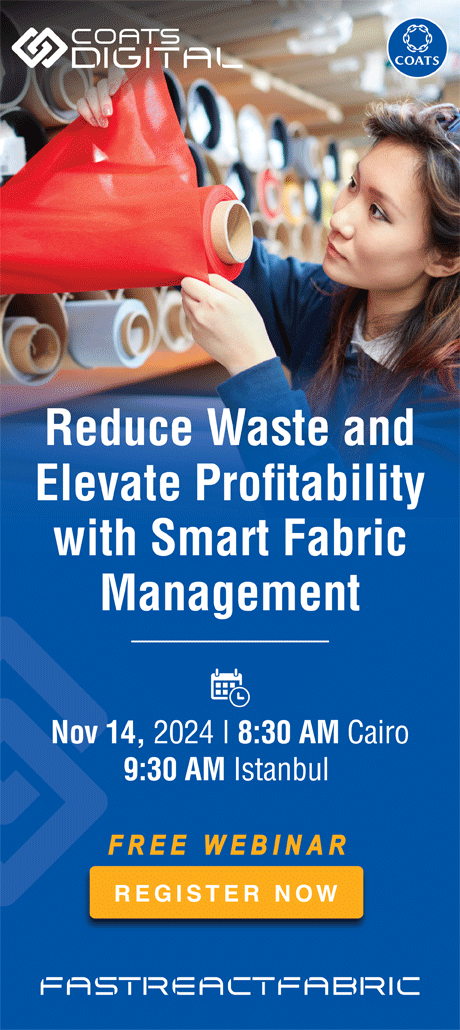Interview with Mr. Muktar Dodo, GOTS Representative in Africa
GOTS is the worldwide leading textile processing standard for organic fibres, including ecological and social criteria, backed up by independent certification of the entire textile supply chain. GOTS-certified final products may include fibre products, yarns, fabrics, clothing, home textiles, mattresses, personal hygiene products, as well as food contact textiles and more. Having one common standard means textile processors and manufacturers can export their fabrics and garments with one organic certification that is accepted in all major markets. This transparency also gives consumers the power to choose truly organic products sourced from green supply chains.
Kohan Textile Journal: Please let us know about GOTS Company, it’s history and success story.
Starting in 2002, GOTS was developed by:
• International Association of Natural Textile Industry (IVN)
• Japan Organic Cotton Association (JICA)
• Organic Trade Association (OTA)
• Soil Association (SA)

In 2008 these Founding Organisations set up a legal entity under German law: “Global Standard gemeinnützige GmbH” (Global Standard non-profit limited liability company). Charged with executing the Global Organic Textile Standard programme, this legal entity conducts all activities in connection with the implementation of GOTS and its quality assurance as well as the related labelling system.
It is the proprietor of the GOTS label and is registered as a trademark in relevant production countries and sales markets for organic textile goods. At the end of 2022, there are 13,549 GOTS certified facilities worldwide.
In 2019, GOTS received the highest ranking in a test of the “Traceability of Clothing with Textile Seals” conducted by the German consumer product testing organisation Stiftung Warentest which compared five different seals for sustainable clothing. GOTS is the only one of the Standards tested to offer complete transparency and traceability while complying with strict social and ecological criteria at all stages of production – from field to finished textile.
More recently, at the 2022 United Nations Climate Change Conference, also known as COP27, GOTS was recognised by the US Department of State and the International Trade Centre as a recommended standard for textile processing. Part of an effort to help scale small and medium enterprises (SMEs) while strengthening their environmental commitment, the Climate Smart Network is an online platform that features GOTS-certified businesses and connects producers to buyers along the supply chain.
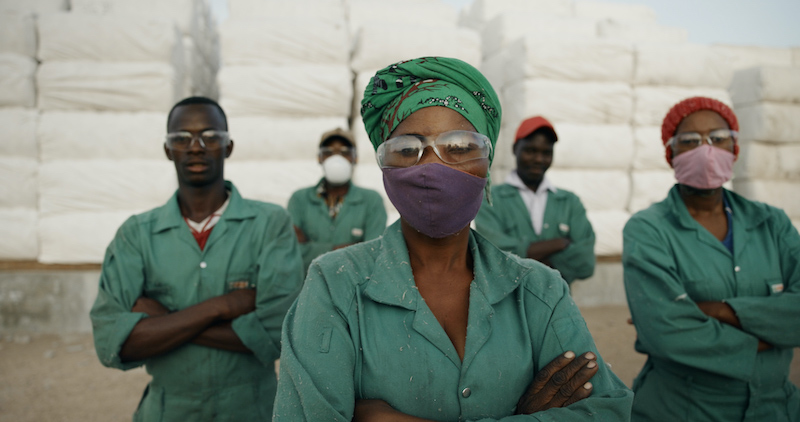
Kohan Textile Journal: Which kind of certificates and services do you offer to the textile companies?
The Global Organic Textile Standard (GOTS) is a comprehensive and highly regarded standard for certified organic fibres. It covers all stages of post-harvest processing, including spinning, knitting, weaving, dyeing, and manufacturing, and holds both environmental and social criteria.
Operators from post-harvest handling up to garment making, as well as wholesalers (including exporters and importers), have to undergo an on-site annual inspection cycle and must hold a valid certification in order for the final products to be labelled as GOTS certified.
To become GOTS certified, a product and its processor, manufacturer or trader must undergo a series of inspection methods by an independent Certification Body. Once the requirements are met, the Certification Body will issue formal certification documents.
There are two types of certification documents:
Scope Certificates (SCs) which prove that a supplier meets all criteria to be allowed to process GOTS goods and Transaction Certificates (TCs) which prove that the goods themselves meet all GOTS product criteria.
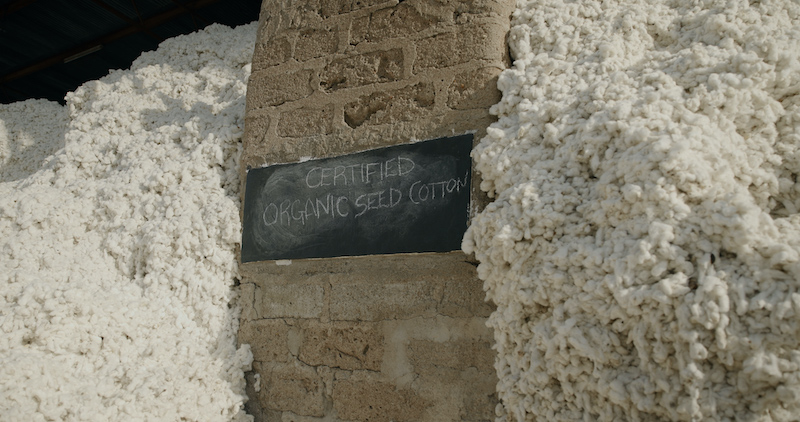
Kohan Textile Journal: Could you please let us know how many textile and garment companies have GOTS certificates by country? Do you have any agency in MEA Region?
The GOTS organisation has several representatives who operate in a global network to promote GOTS in their respective regions and around the world. To date, Regional Representatives are located in USA/Canada, Germany/Austria/Switzerland, Japan, United Kingdom China, India, Bangladesh, Turkey and in Africa.
Distribution of GOTS Certified Entities (CE) Worldwide
| Regions | Number of GOTS CEs |
| Africa | 180 |
| Rest of Asia | 767 |
| Australia/New Zealand | 50 |
| Bangladesh | 1289 |
| South and Central America | 53 |
| China | 1775 |
| Europe | 3837 |
| India | 3699 |
| North America | 225 |
| Turkey | 1674 |
| Total | 13549 |
Kohan Textile Journal: Why international standards and certificates and specially GOTS certificates is important for manufacturers?
GOTS is the worldwide leading textile processing standard for organic fibres. With strict environmental, human rights and social requirements along the entire supply chain and full traceability from field to finished product, GOTS certification is the one-stop solution for companies who need to ensure:
• Compliance with Environmental and Human Rights Due Diligence: GOTS certification ensures that companies implement risk-based environmental and human rights due diligence in their operations and supply chains.
• Traceability from Origin to Destination: With GOTS certification, companies can track the movement of a product or material from its origin to its final destination, providing transparency to consumers and ensuring the integrity of the supply chain.
• Verifiable Sustainability: GOTS certification is an efficient tool for companies who want to prove their genuine sustainability efforts and avoid greenwashing.
• Increased Market Access: GOTS certification opens up new markets and provides companies access to consumers who value environmentally and socially responsible products.
• Improved Supply Chain Management: GOTS certification helps companies improve their supply chain management and ensures that they work with suppliers who meet the same high standards.
• Safe Products: GOTS certification guarantees that the finished product is safe and free from hazardous chemicals such as PFAS, heavy metals or carcinogenic dyes.
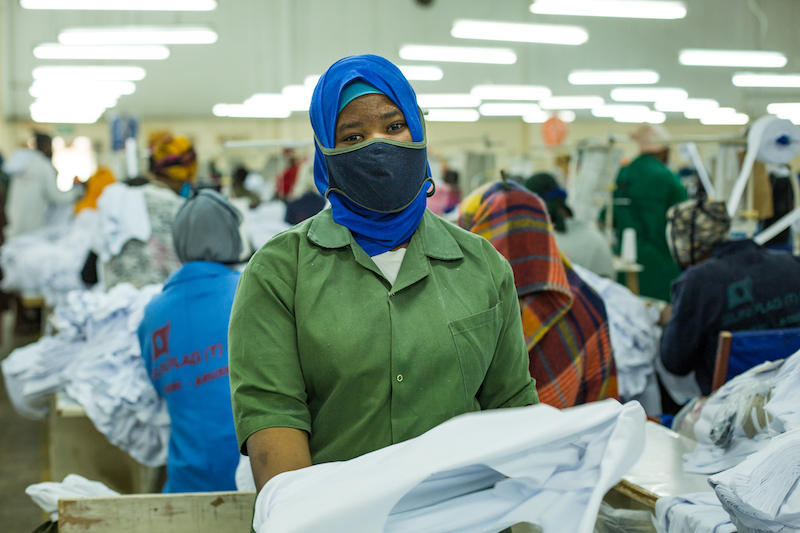
Furthermore, GOTS certification ensures that a final product has been produced in a way that complies with each of the 17 United Nations Sustainable Development Goals, linking ecological services and quality of life with economic growth.
GOTS certification can also be a unique and important tool for a business’s risk management strategy. The Standard is a guide for companies, with up to date, revised, scientifically sound, relevant, and verifiable criteria, which are recognised and established, mitigating ecological and social risks in the supply chain. More efficient factories, using less water and energy, reduce investment risk for companies. The stringent regulations of the Standard act additionally as an ongoing early warning system for potential threats to the environment and workers.
Kohan Textile Journal: Textile industry is one of the most polluted industries specially in terms of water waste and chemicals. How we can help to textile industry to be cleaner and environmentally friendly?
GOTS plays a significant role in making the textile industry cleaner and more environmentally friendly. This is because GOTS Certification ensures that organic fibres, whether from plant or animal origin, are grown without the use of synthetic pesticides, herbicides, or genetically modified organisms (G.M.O.s), which helps sustain the health of ecosystems, soils, and people. Organic farming practices also protect farmers and biodiversity.
Moreover, GOTS has strict criteria for the use and approval of chemicals, aimed at protecting the health of workers along the supply chain, the environment, and the end consumer. This means that harmful chemicals such as flame retardants, PFAS, and toxic dyes are prohibited, and allergenic, carcinogenic, or toxic chemical residues are not allowed. All chemicals used must be approved by GOTS certifiers prior to use, and workers are trained in safe handling and storage of all potentially dangerous materials. GOTS-certified end-products are tested for hazardous substances as part of compliance.
Additionally, GOTS ensures the responsible and efficient use of resources such as water, chemicals, and energy, which are critical actions needed in textile processing to reduce waste and decrease CO2 emissions. GOTS requires that all Certified Entities collect and make available data on energy and water usage and have target goals in place to lessen consumption and reduce waste. This helps to minimize the use of water, chemicals, and energy and increase the use of renewable energy, making the whole sector more environmentally friendly.
Kohan Textile Journal: As a textile expert how do you evaluate the textile and apparel sector in the Middle East and Africa Region?
The textile and apparel industries are among the major industrial sectors in the north African countries of Egypt, Tunisia, and Morocco. The sector is also growing in many sub-Saharan African countries due to a range of free trade agreements with the United States and the European Union.
For instance, the textile and apparel exports under the AGOA quotas (2015 to 2025) have grown consistently year-on-year. Africa also offers the advantages of proximity to raw materials due to the suitable climate for agriculture and a youthful population.
These competitive advantages have attracted foreign direct investments in textile industrial parks and the cotton value chain in countries such as Benin, Togo, Burkina Faso, Nigeria, Ghana and Mali on the west coast and Tanzania, Uganda, Ethiopia, Mozambique, and Kenya on the east coast.
Madagascar and Mauritius have also become more prominent in the global textile and apparel supply chain. The continent is definitely poised to grow into a new hub for the sourcing of textiles and apparel.
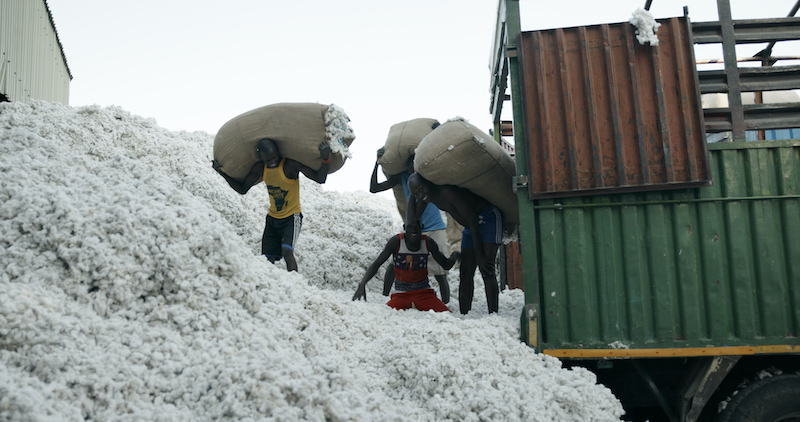
Kohan Textile Journal: Sustainability and green products are a must for the future, how do you evaluate MEA Region textile and apparel industry in terms of sustainability and green products? What are the MENA Region’s advantages and disadvantages?
There is an increased understanding among consumers and manufacturers of the need for GOTS stringent environmental and social criteria in the textile value chain, and the advantages of organic agriculture to the ecosystem. Brands and textile manufacturers now see GOTS as a risk control tool just as consumers see GOTS goods as the ultimate in green textiles.
Looking into the future we forecast continuous growth in the number of GOTS-certified entities in the MEA region. As investments continue to flow into the region’s textile industry, GOTS will become the reference standard on which a green and sustainable textile and apparel industry will be built.
Kohan Textile Journal: Recycling textile materials is a critical subject for future, How GOTS help textile manufacturers and end users in this field?
GOTS makes provision for certain types of recycled fibres to be used as additional fibre in certain GOTS products. This can be found in section 3.2.3 of GOTS 7.0 and section 2.4.9 of GOTS 6.0.



